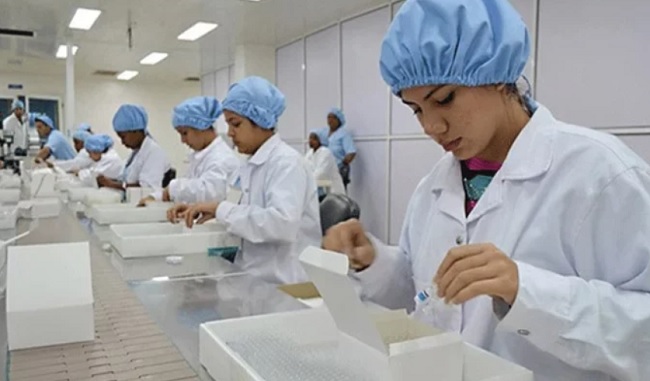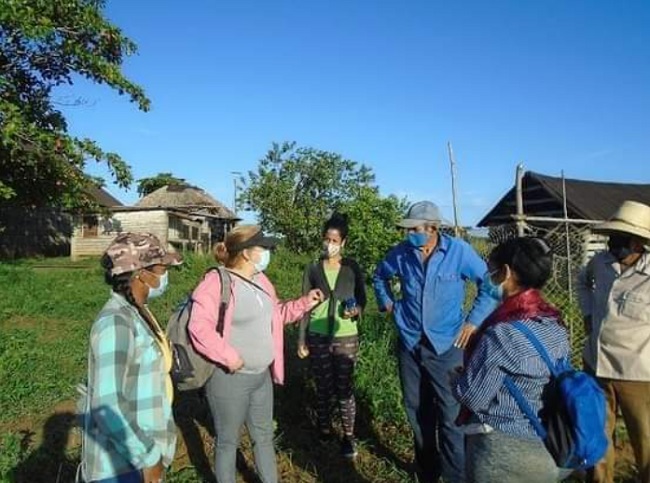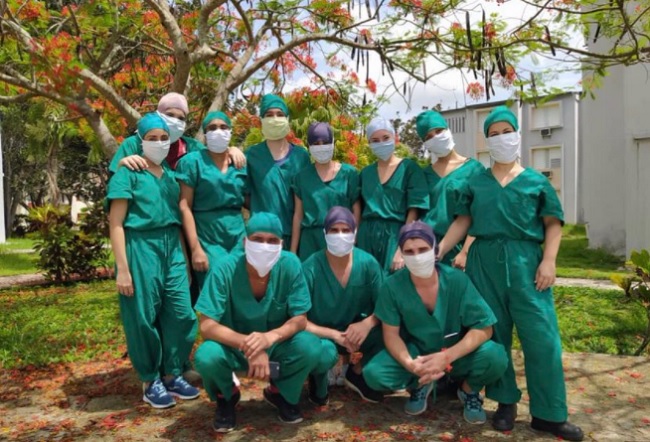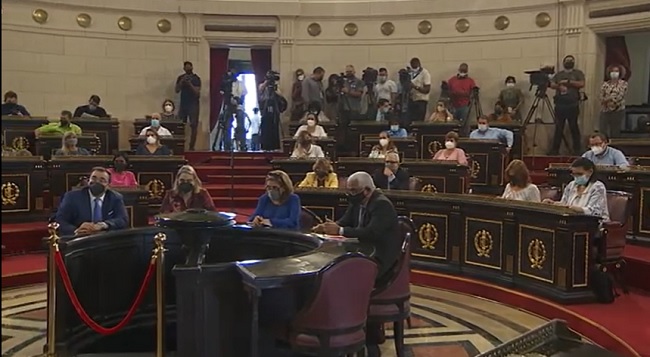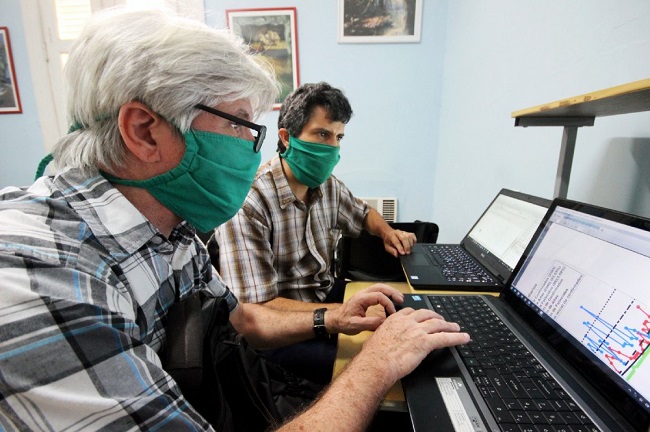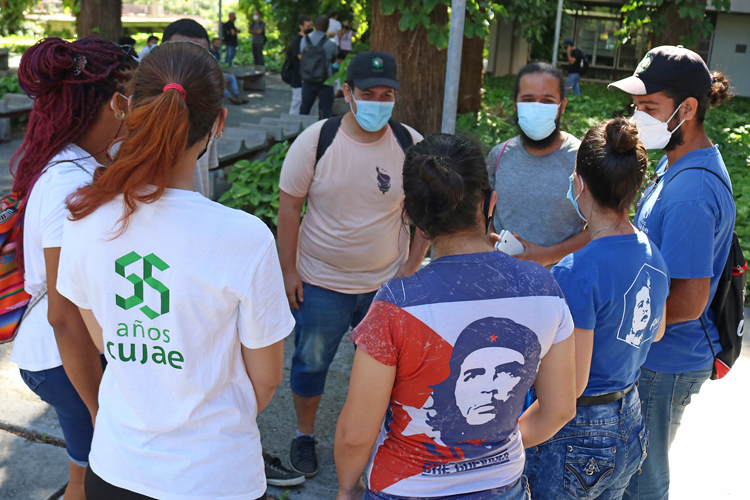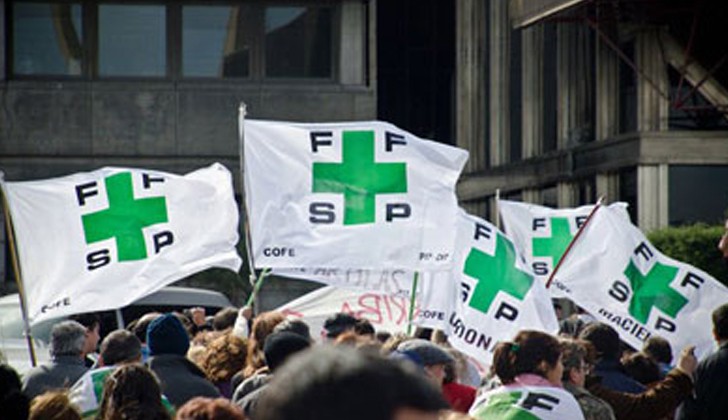Cuban universities are not a sum of classrooms where the lines of chalk on the blackboard delimit their borders.
“Today the role of the University in the government management system based on Science and Innovation is visible”, assures President Miguel Díaz-Canel.
Happens that, as highlighted in the balance of work in 2021 of the Ministry of Higher Education (MES), the interconnections of these higher education centers with the productive sector of goods and services and also with the public administration have been strengthened.
Photo: taken from radioflorida.icrt.cu
An example of the new organizational forms arising from university talent and innovation are the science and technology parks as well as Interface companies, which not only reduce time in the implementation of solutions but also contribute to the financing of scientific activities.
At the Hermanos Saiz Montes de Oca university in Pinar del Río, for example, the link with companies has gained a singular strength, especially from the innovative work of that teaching center.
As a result, valuable projects have come to light, such as the one named “Food Sovereignty with more science”, which consists of digital platforms to facilitate knowledge about certain crops and to use the potential of each territory in an increasingly better way.
Teachers from the Mantua municipal university exchange with producers from the CCS Álvaro Barba. Photo: from the Facebook of the University of Pinar del Río
The Smart City project also distinguishes them, which enables citizens to know, also through digital platforms, about services, production, the demographic situation, as well as the main resources of each territory.
It is just one example among hundreds, but when commenting on innovation, science and universities, the contribution of students, professors and workers in general from these campuses during the prevention and confrontation with Covid-19 cannot be left out. Rarely has the social commitment and humanism of Cuban Higher Education shone so brightly.
Entities of that educational system they took part in the project and the patent for the Soberana 02 vaccine candidate, in the creation of chemical synthesis laboratories, and in mathematical modeling, among others.
But, in addition, all the vaccines that bear the seal “made in Cuba” and that have saved so many lives, even beyond our borders, as well as the care protocols and the entire strategy of confrontation that this Island has followed, are based on , in one way or another, in an accumulated knowledge that has the university and its teachings as its foundation, which also translated into a voluntary contribution during the hardest stage of the health crisis.
Photo: @IsriUjc
Interdisciplinarity and intersectoriality propitiated, from a manifest political will, these and other contributions from the universities, where, together with the sciences, ethics and values are also apprehended.
From the blackboard to the neighborhood
University professors and students contribute today in the creation of public and legislative policies.
For example, the project of the new Family Code owes a lot to the contribution of these academics, who have not only given their collaboration on a strictly academic level by advising, proposing…
They have also been seen from very varied communication spaces – on TV, radio, the printed and digital press – explaining to the people, clarifying doubts.
Photo: screenshot
It was university professors Patricia Arés, Yamila González and Leonardo Pérez Gallardo who, along with other personalities, took part in the Parliamentary Public Hearing «Cuba lives in families» , on the draft law of the Family Code. And with them were also the students, represented by the president of the Federation of University Students, Karla Santana.
In the coronavirus check-up and control meetings, which the Presidency of the Republic systematically holds, well-known figures from the university field have also taken an active part.
Let Professor Dr. C. Raúl Guinovart Díaz, dean of the Faculty of Mathematics and Computing of the University of Havana, say so, whose graphs, prepared together with the data of epidemiologists, have been followed with particular attention by the people to Learn about the forecasts in the course of the pandemic.
Photo: Alba León Infante
But although not all of them have the visibility of the media, there are many who from Higher Education are contributing to the quality of life of Cubans in the broadest sense of that term.
Last August, More than 3,400 university students, young professors and professionals from various sectors made up the Youth Social Work Brigades (BJTS), an initiative of the Union of Young Communists, to help in the transformation of neighborhoods that need it.
They visited the homes to learn about the problems that afflicted them, what afflicted each family materially and spiritually.
And this contribution to the neighborhoods has not stopped since, in the middle of last year, the government plan for the transformation of the so-called vulnerable or disadvantaged communities began.
The university community has taken part in cultural and educational projects, collecting statistics and also providing solutions to the specific economic and social problems of the neighbourhood, always based on what the neighbors propose.
In construction and cleaning work, students and teachers have been seen shoulder to shoulder with the inhabitants of neighborhoods such as El Fanguito, La Timba, Lawton, just to mention a few enclaves, only from the capital.
Photo: Rebel Youth
And now, from the beginning of the new course, they intend to better organize the participation of students and teachers in accompanying governments and community economic actors.
“In the transformation of neighborhoods, universities can support us, especially in the initial stage, where it is necessary to carry out diagnoses and anthropological studies, which allow us to build socialism with our own efforts and the participation of all,” Díaz-Canel pointed out. during the balance of the month.
Also from the neighborhood, the community and the municipality, it is up to the Cuban university to continue supporting the training of these human resources, who are, precisely, those in charge of promoting local development.
There is no doubt that they will succeed. How not to achieve it if last year, while the US blockade tightened and the pandemic mercilessly hit the production of goods and services, our entire economy, Higher Education managed to advance despite so much headwind.
Photo: Heriberto Gonzalez
Tensing creativity and commitment, they concluded the school year demonstrating, in addition, what is possible in certain circumstances of distance learning.
This was recognized by the Cuban president, who, when exchanging with young university studentsunderlined a truth that continues to be the hallmark of our universities: «You have contributed to the way in which we have to conceive the processes, to the integrality with which the tasks must be projected, and you have also given us many ideas about social work, about public policies, attention to the vulnerable, the reconstruction of the State-Government-Party-People relationship, about how we seek greater participation, how we make all our mechanisms more democratic».

